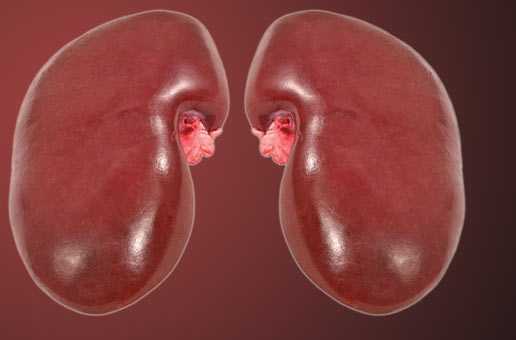Understanding KIDNEY disease

Presently, a million Kenyans are suffering from kidney disease, which is Kenya’s most common non-communicable disease. A report by the Kenyatta National Hospital (KNH) states that majority of those who suffer from the condition are below 45 years of age.
To better understand the disease, one must appreciate the functions of kidneys in our bodies. Kidneys remove waste products and help balance the levels of water, salt and other minerals in the blood. When your kidneys stop working, waste products, fluids and the minerals build up in your body, which is deadly. When you are at this stage, doctors say you are suffering from kidney disease.
Kidney disease can be serious, but early detection and good management can increase the life of your kidneys. However, warning signs do not always accompany kidney disease and it is therefore recommended that you have a kidney health check, which includes blood and urine tests, as well as blood pressure monitoring, at least every two years.
Types of kidney disease…
Kidney diseases are categorised as acute or chronic. Acute kidney disease is caused by an infection or injury to the kidney but the kidneys recover after treatment. Chronic kidney disease is the most common type and worsens over time. It can be caused by high blood pressure, diabetes, or heart disease, all conditions that can damage the small blood vessels within the kidneys. It can also be due to hereditary kidney disease such as polycystic kidney disease.
Kidney disease can also result from inflammation and damage of the filtering components of the kidneys or be caused by other medical problems like lupus or reflux nephropathy, a condition where urine flows from the bladder back to the kidneys causing damage.
Symptoms of kidney disease…
The symptoms are nonspecific and can be confused for another illness and, therefore, wrong treatment given. And because your kidneys are highly adaptable and able to compensate for lost function, the signs and symptoms may not appear until irreversible damage has occurred. Some of the symptoms include:
Nausea, vomiting and loss of appetite.
Feeling lethargic, muscles twitching and cramps and difficulties getting some sleep.
Increase or decrease of urine output.
Mental sharpness nosedives.
Itchy skin.
A bad taste in the mouth.
Feet and ankles swelling
Chest pain and shortness of breath due to fluid build up in the lungs.
Tests for kidney disease…
A doctor will recommend a couple of tests and procedures to verify diagnosis if your signs and symptoms suggest you may have kidney disease.
The first one is the urine output measurement, which gauges the amount of urine that you excrete daily. A second test known as urinalysis will be conducted to assess the amount of protein in urine, as this can be a clue that damage to the kidneys has occurred. Next is the blood test that may reveal if there is an increase in urea and creatinine levels in the blood. The two substances are also used to evaluate kidney functions. You will also go through some imaging tests including a scan and a computerised tomography, which reveal the kidneys’ condition including their size and may also identify whether any obstruction exists.
Although it is a progressive disease, the good news is that kidney disease can be treated very effectively if diagnosed in the early stages. Treatment consists of measures to help control signs and symptoms, reduce complications and slow progression of the disease. If your kidneys become severely damaged, you will undergo dialysis to filter your blood and get rid of harmful waste, extra salt and water in your body. A kidney transplant may be inevitable if both your kidneys are damaged. This involves the removal of the damaged kidneys and replacing them with one from a compatible donor. It is important to note that you only need one functioning kidney and this is why transplants are very common.




